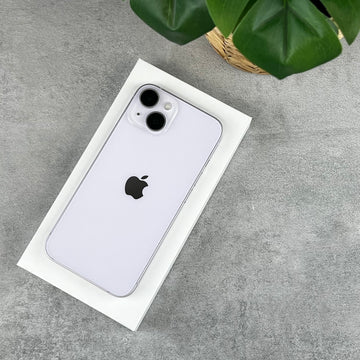Latching Onto NYT Crossword Clues: Tips and Strategies for Success
The Allure of the NYT Crossword: A Deep Dive into Its Enduring Appeal
The New York Times Crossword is more than just a daily puzzle; it has become a cultural phenomenon and a cherished ritual for millions of people around the world. With its blend of challenging clues, clever wordplay, and ever-evolving themes, the NYT Crossword offers a unique and engaging experience that keeps solvers coming back day after day. This article explores the various facets of what makes the NYT Crossword so captivating, including its rich history, the strategies for mastering it, the joys of solving, and the community that surrounds it.
A Tradition of Excellence
The New York Times Crossword has been a cornerstone of puzzle culture since its inception in 1942. Created by Arthur Wynne, the original puzzle set the stage for what would become a benchmark in crossword design. Over the decades, the NYT Crossword has evolved significantly, but it has consistently maintained its reputation for quality and creativity.
Will Shortz, the crossword editor since 1993, has played a crucial role in shaping and preserving this tradition. His tenure has been marked by a commitment to innovation and excellence. Shortz’s influence is evident in every puzzle, from the Monday grids, which are relatively straightforward, to the more complex and demanding Saturday puzzles. The Sunday crossword, with its larger size and intricate design, stands out as a particularly challenging and rewarding experience. Shortz’s ability to balance difficulty with enjoyment ensures that solvers of all levels find something to engage with.
The NYT Crossword is renowned for its clever themes and cultural references. Each puzzle is meticulously crafted to offer a blend of wordplay, contemporary topics, and timeless clues. This blend keeps the puzzles fresh and relevant, making them a daily highlight for many.
Strategies to Master the NYT Crossword
While the NYT Crossword can be challenging, there are several strategies that can help solvers improve their skills and enjoy the process more fully. Whether you are a novice or an experienced solver, these tips can enhance your crossword-solving experience.
Start with the Easiest Clues
One effective strategy is to begin with the easiest clues. These are often fill-in-the-blank questions or clues that feature common crossword entries. By starting with these clues, you create a foundation within the puzzle that makes it easier to tackle more challenging parts. This approach also helps you build confidence and gain momentum as you work through the grid.
Starting with easier clues can provide you with a foothold in the puzzle, allowing you to uncover letters and words that can assist in solving more difficult clues. This method is particularly useful when dealing with complex puzzles where many clues are interrelated.
Pay Attention to the Clue’s Wording
Understanding the wording of each clue is crucial for effective solving. Many clues use specific conventions, such as abbreviations, wordplay, and puns. Familiarizing yourself with these conventions can help you decipher tricky clues more easily.
For example, clues that end with a question mark often indicate that a pun or a play on words is involved. Recognizing these subtle hints can help you approach the clues with the right mindset and improve your chances of finding the correct answers.
Leverage Cross-References
Cross-references within the puzzle can be incredibly useful. Many clues are interconnected, and solving one clue can provide valuable hints for others. By filling in parts of the grid, you may uncover letters or words that help solve adjacent clues.
This strategy is particularly effective in puzzles with complex or interdependent clues. Working through cross-references allows you to navigate challenging sections and complete the puzzle more efficiently. It also helps you see the puzzle as a cohesive whole rather than isolated clues.
Use Crossword Solving Tools
In the digital age, various online tools and apps can assist with solving tough puzzles. While some purists prefer to solve crosswords unaided, using crossword dictionaries, solving apps, or online forums can be beneficial, especially when you’re stuck.
These tools can provide additional resources and support, helping you discover new words, understand obscure clues, and improve your solving skills. They also serve as valuable learning tools, allowing you to enhance your overall approach to crossword puzzles.
The Joy of Solving NYT Crossword Clues
There is a profound sense of satisfaction that comes with solving the NYT Crossword, especially when you overcome particularly challenging clues. The process of engaging with the puzzle, thinking creatively, and seeing the grid come together is immensely rewarding.
Completing a crossword puzzle offers not just a sense of accomplishment but also intellectual stimulation. The joy of solving comes from the mental challenge and the satisfaction of piecing together the clues to form a coherent whole. This experience is both enjoyable and intellectually enriching.
Building a Community
One of the most appealing aspects of the NYT Crossword is the vibrant and welcoming community that surrounds it. Online forums, social media groups, and local meetups provide opportunities for solvers to connect, discuss puzzles, share tips, and celebrate their successes.
Being part of this community enhances your enjoyment of the crossword. Engaging with fellow solvers allows you to exchange strategies, learn from others, and gain new perspectives on solving techniques. The sense of camaraderie adds an extra layer of enjoyment to the puzzle-solving experience and fosters a supportive environment for all participants.
Personal Growth and Brain Training
Engaging in crossword puzzles is more than just a pastime; it’s a valuable exercise for the brain. Studies have shown that solving puzzles like the NYT Crossword can improve cognitive functions such as memory, problem-solving skills, and overall brain health.
The mental challenge of solving crosswords provides cognitive stimulation that helps keep your mind sharp and agile. Regularly engaging with puzzles can enhance your analytical abilities and offer a stimulating mental workout. This aspect of crossword solving contributes to overall brain health and cognitive well-being.
Conclusion
The NYT Crossword remains a beloved and enduring puzzle that captivates solvers worldwide. Its rich tradition, challenging clues, and intellectual rewards make it a unique and engaging pastime. By understanding its allure, adopting effective solving strategies, and embracing the joy of the puzzle, anyone can experience the thrill of completing the grid.
Whether you are a casual solver or a dedicated enthusiast, diving into the world of the NYT Crossword with confidence and skill can be immensely satisfying. Embrace the challenge, enjoy the process, and revel in the satisfaction of latching onto those elusive clues. Happy solving!
Delve into trending topics and uncover hidden gems at BuzzDiscover.co.uk.






